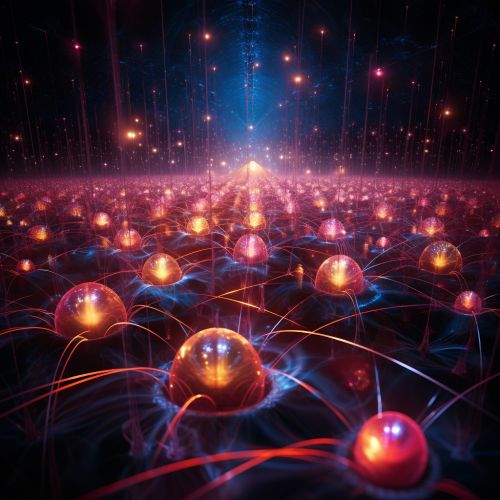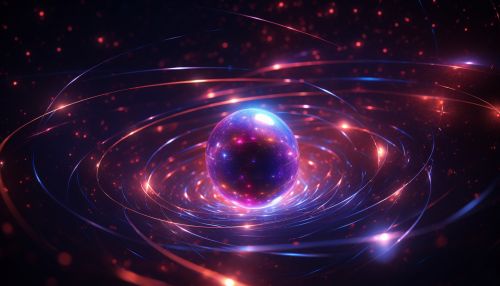Quantum Second Law
Introduction
Quantum mechanics is a fundamental theory in physics that provides a description of the physical properties of nature at the scale of atoms and subatomic particles. It is the foundation of all quantum physics including quantum chemistry, quantum field theory, quantum technology, and quantum information science. The Quantum Second Law is a concept that extends the traditional Second Law of Thermodynamics into the quantum realm.


Quantum Mechanics and Thermodynamics
Quantum mechanics and thermodynamics are two fundamental pillars of modern physics. Thermodynamics deals with the macroscopic behavior of systems, while quantum mechanics describes the microscopic properties. The Second Law of Thermodynamics, which states that the total entropy of an isolated system can never decrease over time, has long been a cornerstone of classical physics. However, when we venture into the quantum realm, things start to behave differently.
Quantum Second Law
The Quantum Second Law is a theoretical extension of the classical Second Law of Thermodynamics to quantum systems. It states that the entropy of a quantum system does not decrease, in line with its classical counterpart. However, unlike the classical version, the Quantum Second Law incorporates the concept of quantum superposition and quantum entanglement, two fundamental aspects of quantum mechanics.
Quantum Entropy
Quantum entropy, a measure of uncertainty or randomness in a quantum system, plays a crucial role in the Quantum Second Law. It is defined in terms of the density matrix, a mathematical construct used in quantum mechanics to provide a statistical description of a quantum system. The concept of quantum entropy extends the classical notion of entropy into the quantum realm, incorporating the effects of superposition and entanglement.
Quantum Superposition and Entanglement
Quantum superposition and entanglement are two key features of quantum mechanics that have no classical analogs. Superposition is the ability of a quantum system to be in multiple states at the same time until it is measured. Entanglement, on the other hand, is a phenomenon where two or more particles become interconnected and the state of one particle cannot be described independently of the state of the other(s), no matter the distance between them.
Quantum Second Law and Information Theory
The Quantum Second Law also has profound implications for quantum information theory, a field that explores the quantum mechanical properties of information. It provides a theoretical framework for quantum computing and quantum communication, which promise to revolutionize technology by offering unprecedented computational power and secure communication.
Implications of the Quantum Second Law
The Quantum Second Law has far-reaching implications for our understanding of the universe. It provides a bridge between the macroscopic world of thermodynamics and the microscopic world of quantum mechanics. It also has potential applications in emerging fields such as quantum computing and quantum information science.
